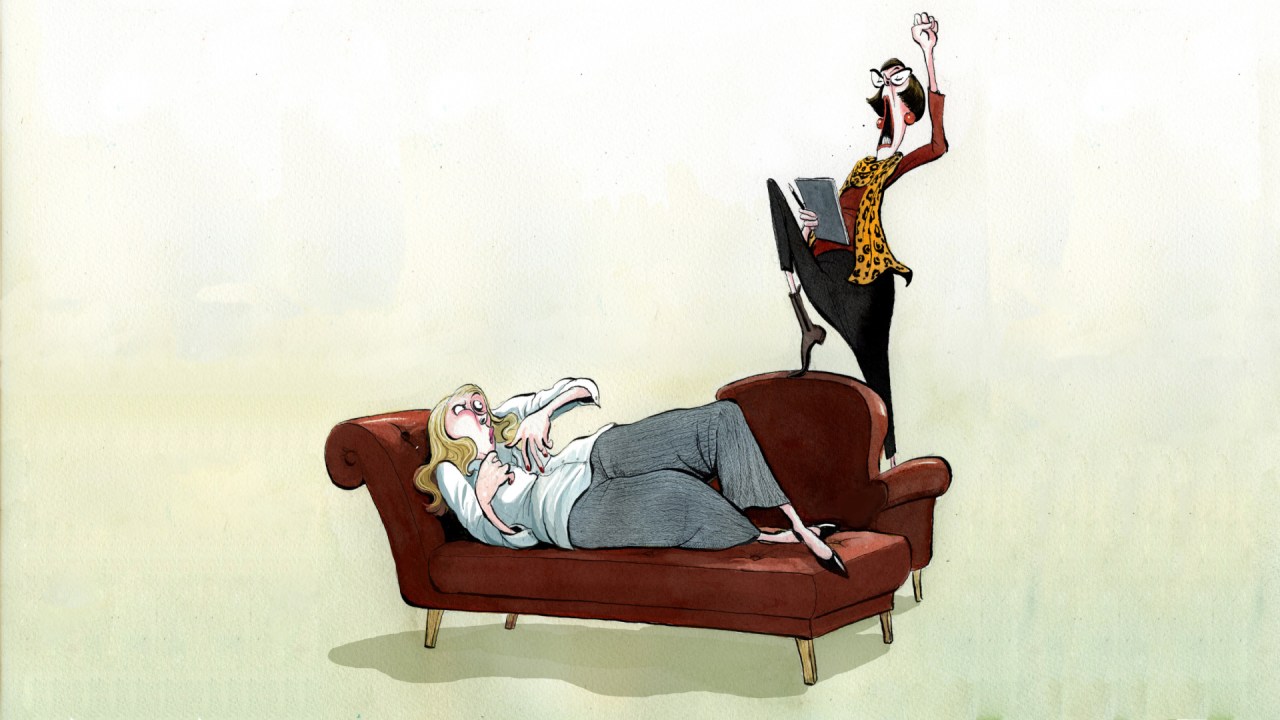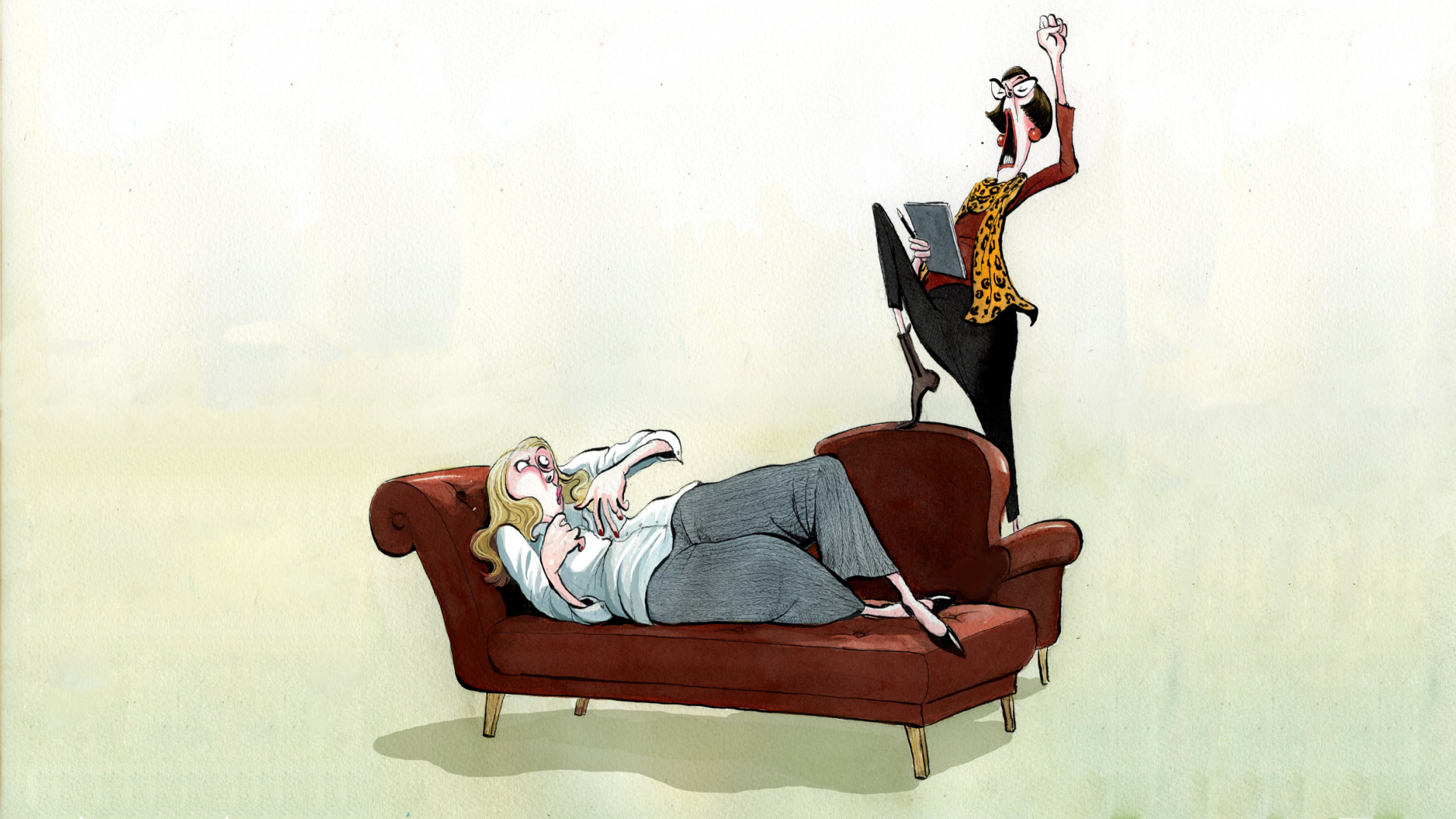One afternoon in May 2021, as I was sat at my desk, an email notification from my university course appeared on my screen. ‘Termination of Contract’ was the subject line.
I crumbled into pieces on the floor. I was fortunate to be at my mother’s house at the time and she comforted me. But the truth was that I was inconsolable. I had devoted four years of my life towards training to become a psychotherapist. I had spent tens of thousands of pounds in the process. In one email, my hard work and future aspirations had come crashing down.
The question going round and round inside my head was: ‘Why?’
It soon became clear. The truth is that this happened to me because I hold gender critical views. I believe that biological sex is binary and immutable. I do not believe that children should be taught otherwise. Nor do I believe that children should be unequivocally affirmed down a path of potentially irreversible medical transitioning.
These beliefs, founded in science and ethical therapeutic considerations, were enough to cost me my vocation.
I first realised that I wanted to move into the vocation of psychotherapy in my mid-twenties. At the time, I was practising as a criminal barrister in London. To dip my toe in the water, I took on a role as a volunteer counsellor with the charity Childline. One night a week, after finishing in the office, I would head over to Childline for a shift which involved speaking to distressed children for all manner of issues. In total, I spent almost six years counselling with Childline. I felt so inspired by helping these young people that I decided to make it my life’s work. I undertook a Foundation Certificate before enrolling on what was supposed to be a five-year Master’s programme at the Metanoia Institute – a west-London specialist institute for psychotherapy and counselling. I found the course extremely fulfilling and before long I was starting to see clients weekly for private therapy with the charity, Mind.
Over the years at Childline, I began to notice an increase in the number of children contacting us to discuss feeling trapped in the wrong body. My role wasn’t to advise, merely to listen and explore. Children as young as eight told me they were certain they were trans – but they didn’t seem to have much understanding of what ‘trans’ meant. Some were desperate to take medication to delay their puberty – but didn’t seem to know what puberty involved. Many told me that they had joined online communities where their trans identities were celebrated and encouraged. Most (but not all) were born as girls and wanted to be boys. Some were already using breast binders, a piece of clothing that compresses breasts and can cause serious damage if not used properly. I decided to immerse myself
In the UK, children are sometimes prescribed puberty-blocking drugs. Advocates say these drugs give children more time to work out their options, and they stress the drugs are ‘reversible’ (i.e., once you stop taking them, they claim, normal puberty resumes). But the science is far from clear. The medication is relatively new and experimental, so we have no long-term data. In my view, puberty is part of natural development. If we artificially halt that process, even if you later come off that medication, can it ever be said that you’ve gone through a natural development?
Cross-sex hormones (which studies show that the vast majority of children on puberty blockers will go on to take) can also bring about irreversible changes to a young person’s body and may even impact on fertility and sexual functioning.
For those who seek to eventually surgically transition, this may culminate in a double mastectomy. I have met many ‘detransitioners’ who deeply regret the emotional and physical scars, as well as the feeling that they were encouraged down a particular path.
Mere ‘social transition’ – when a child simply starts living as the other sex, often involving a change of wardrobe and a possible change of name and pronouns – is usually seen as the soft and harmless option, because it doesn’t involve medical treatment. However, in my experience once you’ve started down that path, it’s difficult to change course. I’ve spoken to children who identify as trans and would secretly like to detransition but they’re too frightened of being labelled a liar or attention-seeker.
I expected vigorous debate on this issue within my community of therapists. But instead, I found silence. There was very little serious engagement with the issue of gender dysphoria – the mental health condition one must be diagnosed with in order to legally or medically transition. People diagnosed with gender dysphoria frequently have other diagnoses, including autism, or may have experienced previous trauma. My training institute, along with my governing body, the United Kingdom Council for Psychotherapy (UKCP) appeared to ascribe to gender ideology – that sex is not binary.
The message seemed to be that if a child we are counselling tells us they want to transition, we should simply ‘affirm’ that position. To challenge or explore the issue with them could be seen as ‘conversion therapy’ or possibly even ‘transphobia’.
Frustrated with the lack of open dialogue, I co-founded Thoughtful Therapists, a group committed to discussion of these issues. Questions around transitioning are complex, nuanced, and can have serious ramifications. We shouldn’t pretend otherwise.
Matters came to a head in early 2021, when the UK government brought forward plans for its long-discussed ban on ‘conversion therapy’. Conversion therapy is usually understood to refer to (misguided) attempts to turn gay or bisexual people straight. It’s usually not carried out by a trained therapist, but instead within a family, or in a religious setting. I’ve always found the practice to be abhorrent, and I’d happily see it banned.
However, the government quickly sought to include ‘gender identity’ within the remit of this legislation. Myself and many colleagues started to worry that the government’s proposed new law would also criminalise any attempt to openly explore issues with a child who has gender dysphoria. We have seen similar legislation passed abroad, including in Canada, New Zealand and Ireland, often with extremely ambiguous language and without clear safeguards for trained mental health practitioners. I have spoken to therapists in these countries who say they will no longer work with children who have gender dysphoria, as they fear being wrongly accused of carrying out conversion therapy and possibly even criminalised.
Off the back of the government’s legislative announcement in early 2021, I started a public petition, calling on the government to safeguard essential, explorative therapy for children struggling with gender dysphoria as part of any ban and recognise that most children with gender dysphoria will eventually settle into their bodies. My petition quickly garnered more than 11,000 signatures and eventually a response from the government, which said: ‘We… are clear that this ban must not impact on the independence and confidence of clinicians.’
But my intervention was quickly met with abuse from trans rights activists on social media. I was labelled a transphobe, a bigot. I’m neither of those things. Nobody wanted to engage in discussion – they simply wanted to attack me.
A few weeks after launching my petition, I received an email from the Deputy CEO of Metanoia Institute. She said she had received a handful of complaints about my petition and asked whether I could come in for an ‘informal’ chat two days later. Of course, I agreed. But I felt extremely anxious – what had I done wrong? What did the complaints say? The meeting never came.
I received another email from the Deputy CEO, summarily expelling me from my course for bringing the institute and profession ‘into disrepute’. It was only a few paragraphs long. I was provided with no right of appeal, and not a single opportunity to defend myself or even have a conversation. It was all the more confusing given that just weeks earlier, I had been signed off by my institute to set up a private therapy practice.
I tried to reply, asking for details. But my university email had already been disabled. Then I tried to login to the university intranet to check policies on expulsion – but again, I’d already been booted off. I was blacklisted within a matter of minutes. That same evening, Metanoia went on Twitter to announce the expulsion, damaging my reputation even further.
It felt truly horrible. I was being discriminated against for my beliefs and for simply trying to engage in a dialogue about safeguarding children. Given how tight knit the psychotherapy community is, I am starkly aware of the impact this ordeal has had on my future career prospects.
Within a few weeks of my expulsion, Childline told me that they were terminating my volunteering contract with them, on similar grounds. Having devoted six years of my life to this organisation and supporting young children in need, this was extraordinarily painful.
An NSPCC spokesperson says:
‘Childline is – and has always been – here for every child, no matter the issue or concern. Our trained counsellors provide support and impartial advice to children and young people to explore their feelings in a non-directive way. They offer advice on how to cope with worries, how to discuss concerns with trusted adults in their lives and they signpost to available external support‘
‘“We respect people’s rights to hold different views, but Childline volunteers can’t give the impression Childline endorses their personal campaigns. It’s vital that children know that Childline is a welcoming place for all young people. We believe this is a reasonable expectation. We discussed the situation at length with the volunteer, tried hard to find a solution, but unfortunately we couldn’t find a compromise. We took the concerns he raised about the Childline service seriously and fully investigated them but this had nothing to do with the discussions about his volunteering.‘
After writing about my story on the Crowd Justice website, I feel extremely fortunate to have raised over £116,000 so far from the generosity of complete strangers, money I’m now using to take the Metanoia Institute (as well as UKCP) to court. I have also received thousands of messages of support from parents, teachers, doctors and lawyers, too scared to speak out for fear of being cancelled, as I was.
Following on from a preliminary judgment last year, my case is due to be fought against both Metanoia and UKCP at a full trial. However, I am currently in the middle of various appeals off the back of that judgment and the case cannot proceed until these have been resolved.
Much has changed in the landscape since my expulsion – the closure of the Tavistock, the interim Cass Report, the Charity Commission investigation into Mermaids, the blocking of self-ID in Scotland, the prohibition of biological males competing against females by UK Athletics, and the ongoing cautious debate around ‘conversion therapy’.
These feel like somewhat of a vindication. Yet, there is something painfully ironic about the fact that the beliefs I lost my vocation for have now, in essence, been adopted by the UK government.
Of course, I am seeking personal justice. But this isn’t just about me, as damaging as it has been to my life. It’s about the fundamental issue of free speech. Most importantly, it’s about protecting and providing the necessary support to vulnerable children. The stakes are far too high to stay silent.







Comments